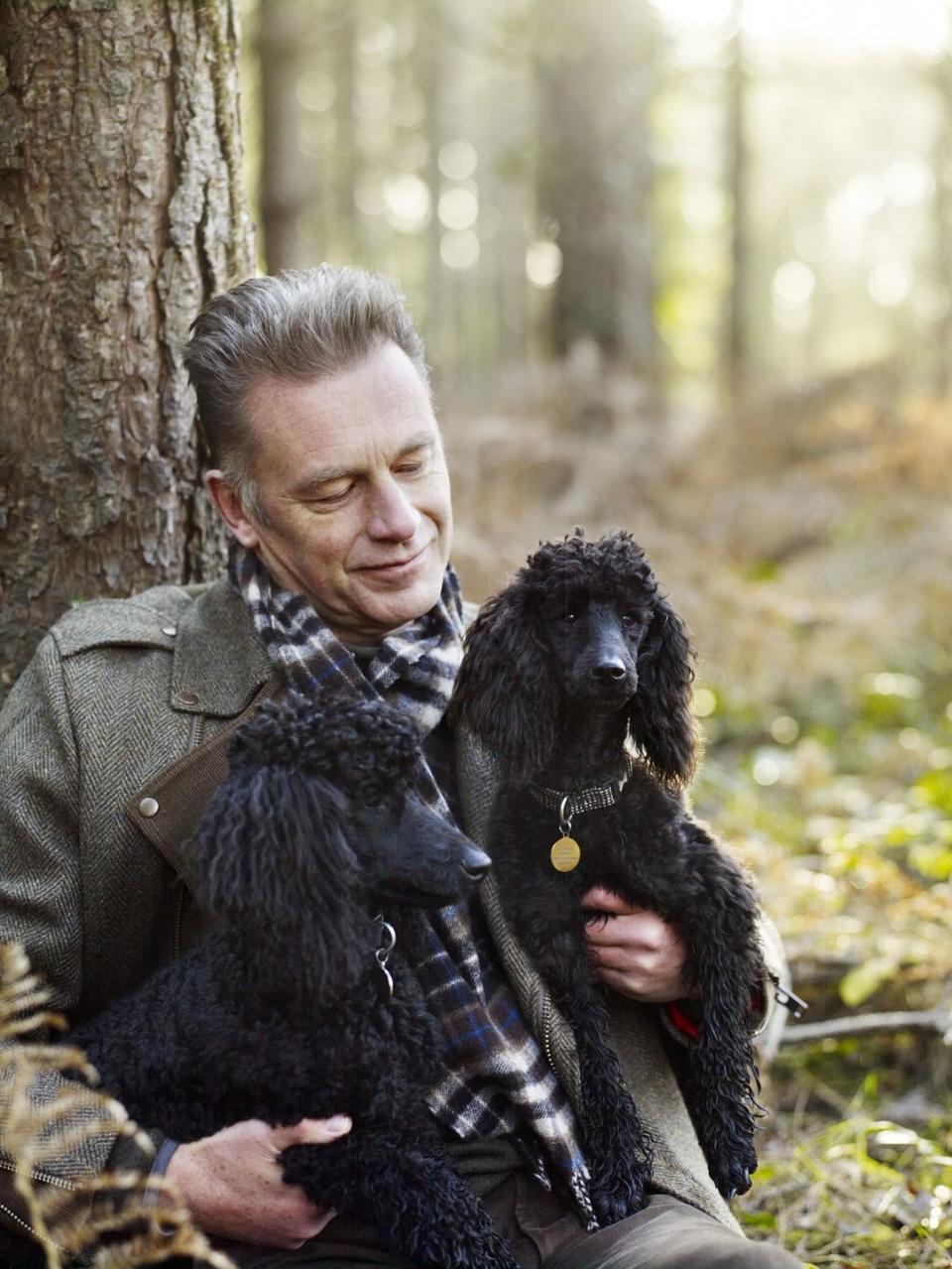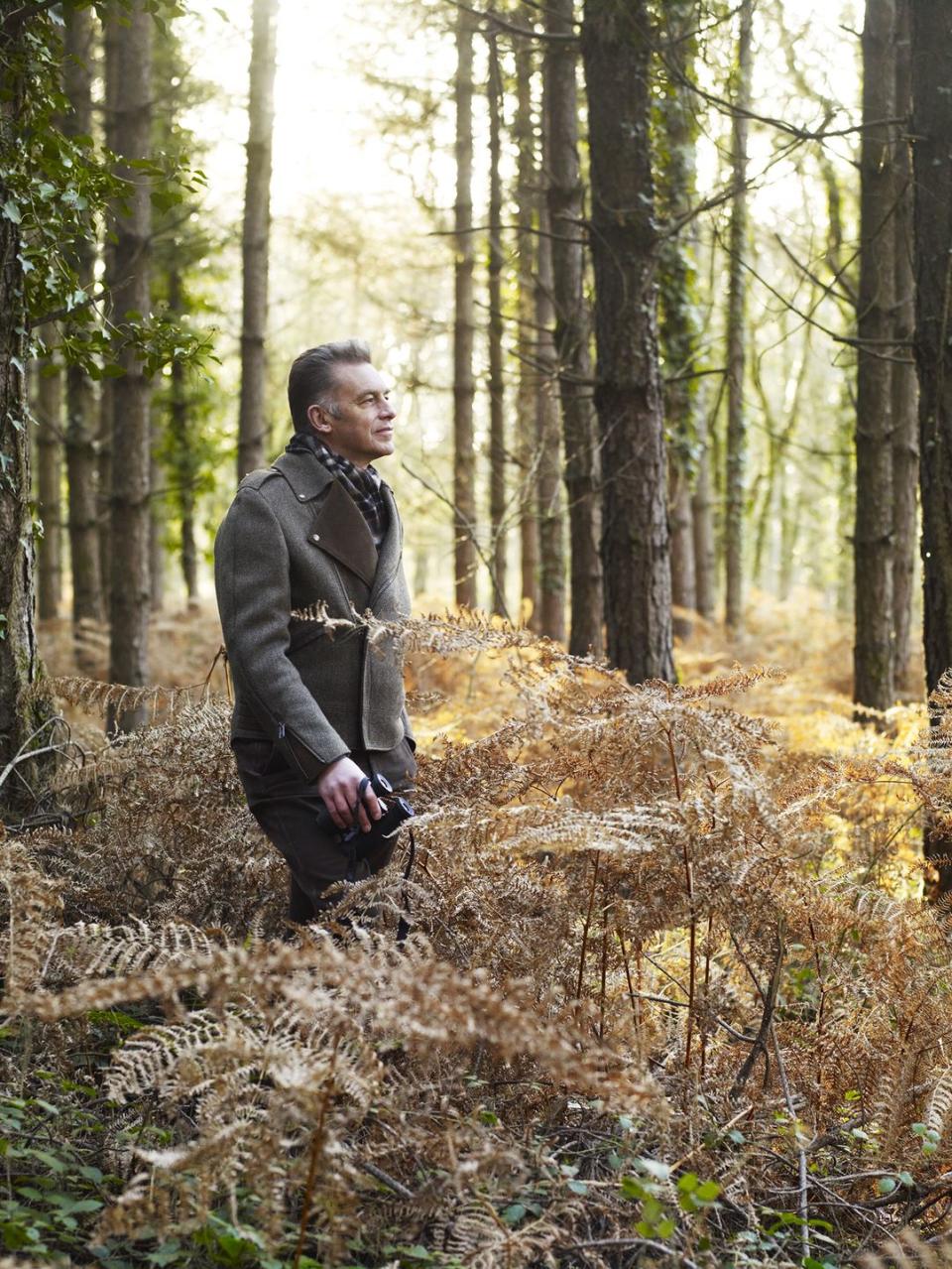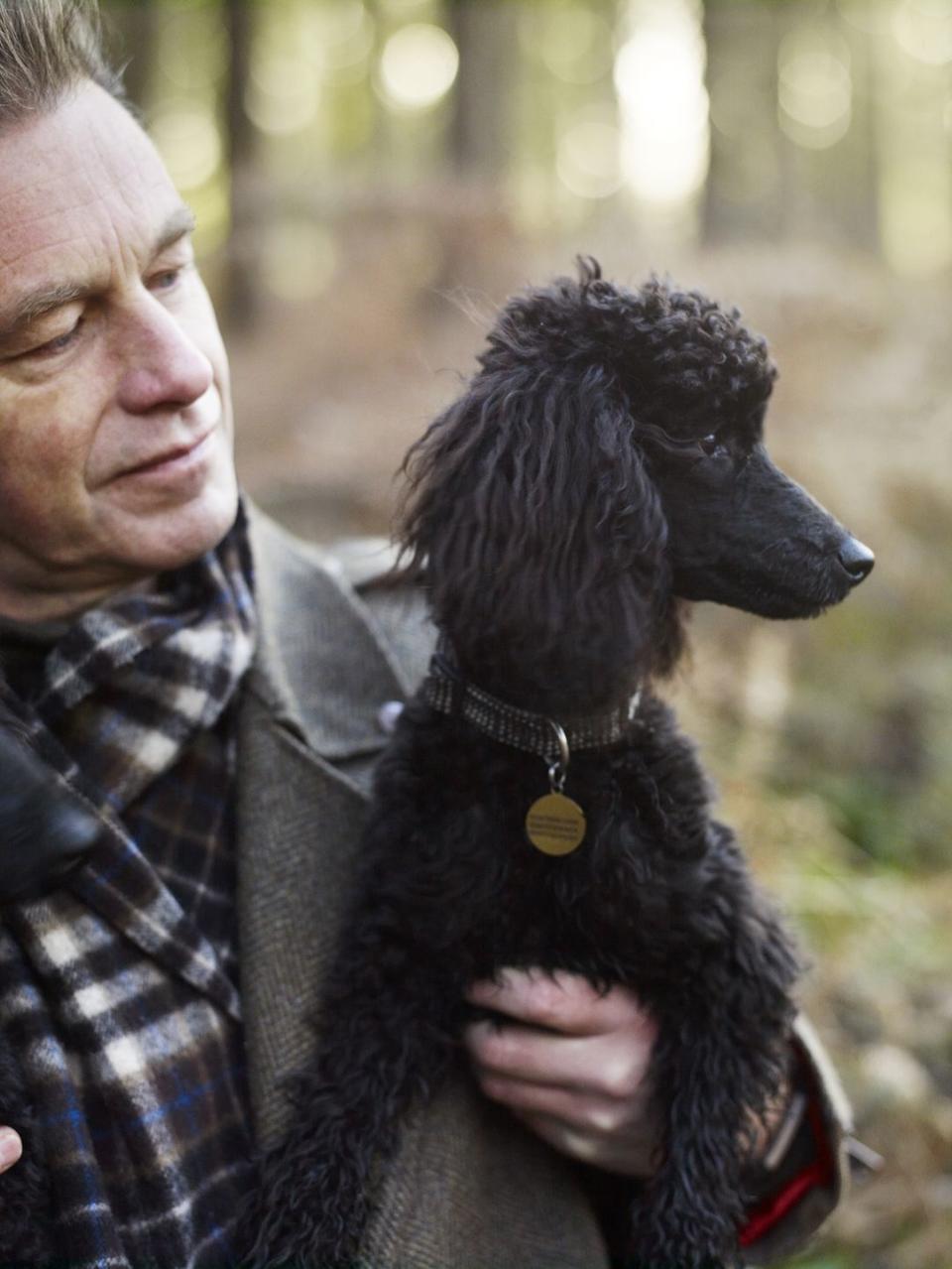5 things you need to do in your garden in March, says Chris Packham
Our April issue profile (on sale now) is Chris Packham, who describes himself as a "naturalist, broadcaster and these days, essentially, a campaigner." Here, he talks to Country Living about eco-activism, Wildlife Rebellion, and his love affair with nature.
Chris Packham is in tweed slippers in his living room when Country Living visit him at his New Forest home for our interview. He's talking about a new sort of activism. It’s not joining a protest, it’s not going vegan, it’s the start of a movement – and the approach might seem surprising coming from him.
“I’ve always had a desire to confront things,” he tells us. “I don’t pull punches, I never would. I’ve always been impatient, and my impatience is now, perhaps, a manifestation of a sense of urgency.” Chris believes that the experts have been "too timid” in calling climate change an emergency. “It’s the [he knocks on the table], excuse me, we’re a little bit cross approach.” And so, Chris's new project is about to be born...
Last December, the Springwatch presenter quietly launched Wildlife Rebellion by posting a video on social media and we are now eagerly awaiting its official launch in spring. Like its cousin, Extinction, Wildlife Rebellion aims to slow climate change and stop the decline of species, but its means are quite different. “Extinction Rebellion – they’re brilliant, but they’re too hardcore for much of my audience,” Chris says, lifting one of his miniature poodles onto his lap. “I won’t say Wildlife Rebellion is going to be softer because we’re still going to tell the truth, but it will be gentler.”

Chris and his co-founder Megan McCubbin (his 20-year-old stepdaughter from a past relationship), will be encouraging people to take practical and meaningful action, like putting up nest boxes or planting a tree. “If anyone gets arrested for putting up a bird box, then I’ll eat my hat and, frankly, pay the bail. We’re going to be doing very positive things,” Chris exudes. For many, it will be a welcome approach from the Springwatch presenter – warmer, conciliatory even.
How can you get involved with Wildlife Rebellion?
Wildlife Rebellion hopes to partner with NGO's like the Wildlife Trusts and the RSPB to involve their millions of active members. Chris also hopes to attract the support of corporate organisations so he can tap into alternative audiences and recruit new members.
The Wildlife Rebellion website will launch in March and kickstart the movement with two summer campaigns.
"One of our principle campaigns is about wild flowers. It will draw attention to that fact that we have lost enormous amounts of our wildflower-rich meadows and, as a consequence, the impact on our insect and bird populations are profound," Chris explains. "We're asking people to start growing their own meadows. We're going to have some temporary meadows which we'll move around the UK before we sight them permanently somewhere they typically wouldn't grow."
"We also want to draw people's attention to the value of road verges because, very often, these areas are meadows – they're unsprayed and unmanaged. But, unfortunately, they are also cut at the wrong time," continues Chris. "We're going to ask people to notify politely where this is happening and ask for a change in management so that our verges can continue to prosper and offer a resource for wildlife."
You can also follow Wildlife Rebellion on the official Facebook page, with activity set to ramp up in spring.
In the meantime, act now with a few of Chris's March garden tips to help your outdoor ecosystem thrive.
5 things you can do in your garden in March, according to Chris Packham
"One of the great joys of spring is the fact that each year it comes at a different time and at a different pace – it's unpredictable. That means that it's always challenging and interesting," says Chris.
1. Put up a bird box
"If you haven't put a bird box up yet, it's not too late. Birds will be prospecting for nesting sites often before March these days but they won't get down to laying – those whole nesting species like great tits and blue tits – until we get into April/May. As a consequence, there's still time in March," Chris tells Country Living.
You can buy a bird box online or make your own ("with a lot more satisfaction involved," Chris chips in) but, in any case, do make sure you get it up quickly. Chris also reminds us that, if your bird box isn't occupied in the first year, move it to a new location the following year.
2. Entertain a bit of rough
"Don't mow all of your lawn. Find a corner of your garden where you can allow it to become, dare I say it, a little bit unkempt," emplores Chris. "That long grass will provide food for butterflies and other invertebrates and shelter for other animals – maybe even something as exciting as a hedgehog."
3. Plant a fruit tree
"We're just on the brink of whether we should be planting trees or not in March. We'd like to plant them between November and February ideally but, if you can apply some water to those saplings in the springtime, you might want to think about it," says Chris. "One of my favourite trees to suggest are fruit trees – everything from cherry to pear to apple. They are easily manageable, relatively small, offer great nectar in the spring and, of course, fruits in the late autumn for birds, insects and mammals."
4. Be more tolerant
"If you build a garden space that's attractive not only to you but to other species, they will come. If you build it, they will come – and when they do come, you need them," Chris emphasises. "You might not think that you need wasps and pigeons and mice but if they're there, they're doing a job, and without all of those jobs being done, your community won't be sustainable and as complete as possible. So never dial 'P' for Pest control if a wasp turns up in the corner of your shed, just let them go about their business. Dial 'T' for Tolerance instead."
5. Plant nectar-rich plants
"It's planting season and what we really want in a garden, to cater for UK wildlife, is a broad spread of nectar throughout the seasons. Nectar is great fuel for insects and, if you bring insects in, you bring in the birds that eat them, too," Chris tell us. "Ideally you want to plant a range of colour which starts in the spring and extends all the way through into autumn. So do some research online and see which species you can plant so that, whenever any animal arrives in your garden, it can top-up on that sugary goodness."

Chris's passion for nature from an early age
Chris openly admits that he likes to be a alone. It's a symptom of autism, a condition he was diagnosed with 15-years-ago. But he can’t hide away – he needs to save our vanishing species.
Growing up in Southampton, he loved nature, and was always outside looking for creatures. He kept reptiles in his bedroom, and badgers, foxes and kestrels in the garden. Today, that love is undiminished. “Nothing humanity has done can compare to something I can find under a stone,” he tells us, between mouthfuls of vegan brownie. “Individual organisms can be exquisite… and, when you get a sense of harmony of all things working together, that is the closest to what I would call absolute beauty.”
As a child, he preferred animals to people because he understood them. And now he feels that way about his own two miniature Poodles, Sid and Nancy, named after Sid Vicious, the bassist with the Sex Pistols, and Sid’s girlfriend.

More recently, he’s started to understand his passion for the natural world through the prism of autism. “We [autistic people] like cataloguing things. We like understanding through order, and we like collecting things,” he says, openly. His eye for detail is also down to “the Asperger’s thing”.
Much of the time, Chris needs space and to do things his way. Every morning, he walks his dogs in the surrounding countryside. “That’s the best bit of the day,” he says. “It makes me happy to make them happy and they love going out and running amok.”
Spending time alone in nature, he adds, is “therapy”. “I used to think I was going there to see something that interested me, but really I was going there because it was a form of therapy – it was providing me with a refuge, a mental refuge.” It’s a refuge today, just as it was when he was growing up.
The full interview with Chris Packham is in the April issue of Country Living. Subscribe here
Like this article? Sign up to our newsletter to get more articles like this delivered straight to your inbox.
You Might Also Like


